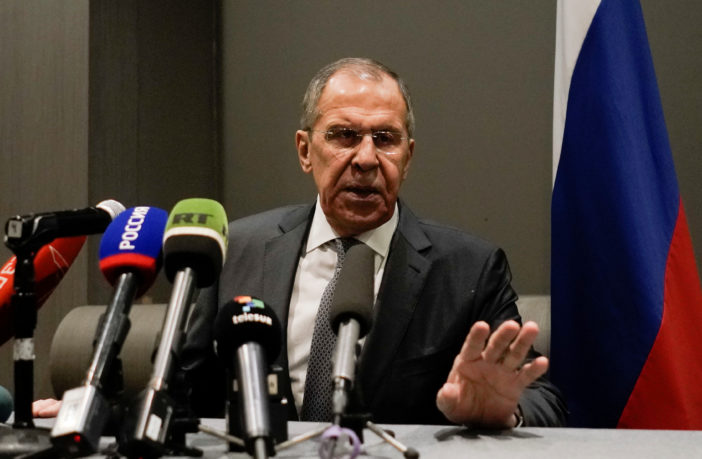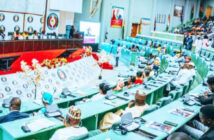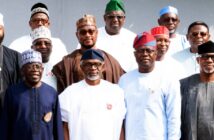Venezuelan President Nicolas Maduro holds talks with Russia’s foreign minister on Friday as Moscow continues to support the isolated South American nation’s socialist government despite Washington’s warnings that it may ramp up sanctions.
Sergei Lavrov arrived in Caracas on Thursday, only hours after the State Department suggested its Venezuela sanctions programme could begin targeting Russia, whose oil companies have helped Maduro by buying much of the OPEC nation’s crude.
Assistance from Russia could be decisive for Maduro to boost oil production and restore economic growth after a surprise opening of the economy last year that followed years of hyperinflation and a migration exodus of some 5 million people.
Lavrov is scheduled to meet with Maduro as well as Vice President Delcy Rodriguez and Foreign Minister Jorge Arreaza.
This week, U.S. President Donald Trump met at the White House with opposition leader Juan Guaido, who is recognised by more than 50 countries as Venezuela’s legitimate president.
And on Thursday, U.S. Special Representative to Venezuela Elliott Abrams warned that Russia’s support for Maduro’s government may “no longer be cost free.”
Lavrov, who was in Mexico as part of a tour of Latin American nations, on Thursday slammed U.S. “provocations” and said Washington was seeking a pretext for a military intervention.
Despite the drama of the Cold-War-esque exchange, it is not evident that Washington is prepared to sanction Russian oil companies due to the potential impact on crude markets.
Though the Trump administration has said it wants to starve Maduro’s government of export revenue, the sanctions include exceptions that allow companies such as U.S. oil producer Chevron to continue buying Venezuelan oil.
Amid the rhetorical bluster, Chevron and India’s Reliance defended their business with Venezuela on the grounds that it has Washington’s approval.
Venezuela’s ruling Socialist Party has overseen a dramatic collapse of a once bustling economy. A corruption-riddled currency control system and state seizures of private businesses left the country with inflation near 10,000%.
Maduro last year abruptly reversed course, broadly allowing the once-banned use of foreign exchange and peppering speeches with free-market catch-phrases.
Western nations broadly described his government as illegitimate after his 2018 re-election, which was criticized as a sham. But the backing of Russia and China as well as continued support from the military has allowed him to retain power.




